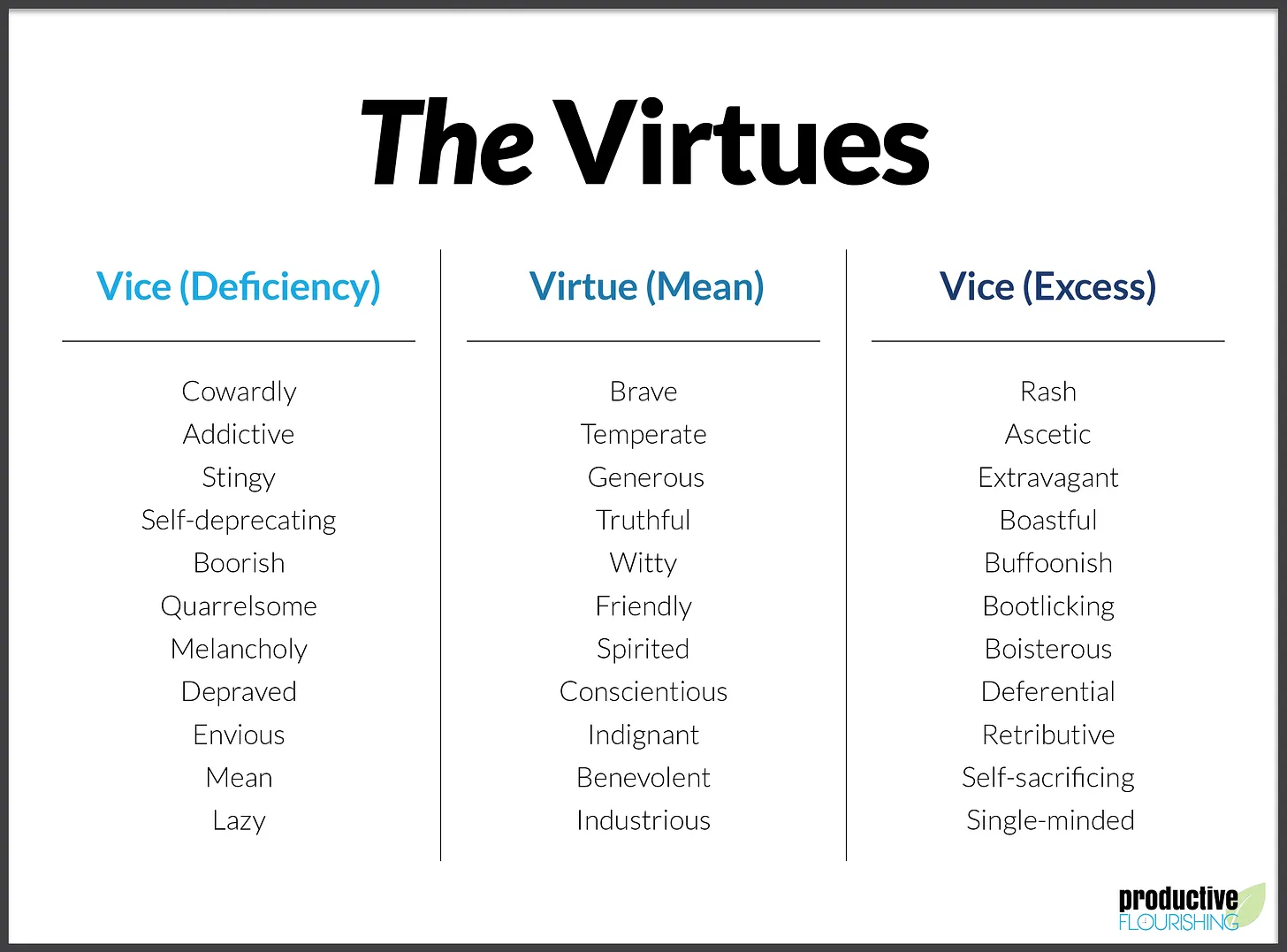Comments
-
Analysis of GoodnessGoodness has two historical meanings: hypothetical and actual perfection. The former is perfection for (i.e., utility towards) some purpose...the latter is perfection in-itself — Bob Ross
Our ability to analyze "goodness" has limits. In this I believe we agree. I approach the task more simply combining "hypothetical" and "actual" starting with Arestolte's Doctrine of the Mean(1), then combining harmonic application(2). Lastly, accepting this process, this ubiquitous human struggle is a constant and fundamental: 'self Vs. self-in-society'(3).
[Apologies for the giant-sized image!]
(1)
(2)"Strictly speaking, there are no such things as good and bad impulses. Think once again of a piano. It has not got two kinds of notes on it, the "right" notes and the "wrong" ones. Every single note is right at one time and wrong at another. The Moral Law is not any one instinct or any set of instincts: it is something which makes a kind of tune (the tune we call goodness or right conduct) by directing the instincts.”
--C.S. Lewis, 1952
(3)"Our whole life is startlingly moral. There is never an instant's truce between virtue and vice”
--Henry David Thoreau, Walden, 1854 -
Agnostic atheism seems like an irrational label
Due to varying definitions, to have a conversation we have to define agnosticism and atheism. If we're just discussing how or if they regard "God"(1)and the former doesn't consider God and the latter actively disbelieves in deity then the compound term agnostic atheism is nonsense. Done.
(1)intelligent, higher power and creator of all, embodies virtue
For further consideration.
The Buddhist take:
"This is why to some Christians, Buddhism seems to be "atheistic"or "pantheistic." Suzuki and his associates claim that it is neither. God is neither affirmed nor denied by Buddhism, insofar as Buddhists consider such affirmations and denials to be dualistic, therefore irrelevant to the main purpose of Buddhism, which is precisely emancipation from all forms of dualistic thought.”
--Thomas Merton, Mystics and Zen Masters, 1961
Antiquated definition of atheist:
"For three centuries Christians suffered persecution ... Christianity seems widely to have been disapproved of in the Roman world, and Christians were referred to as “atheists” because of their failure to believe in the Roman gods.”
--Christopher Cook, Philokalia and the Inner Life, 2011
The common denominator:
"The original conception of Tao was simply the observation that reality has a certain way about it. This “way” encompasses all of existence: life, the universe, and everything. A Christian may call it God’s will; an atheist may call it the laws of nature. These are labels pointing to the same thing, and Tao is simply the most generalized label imaginable, applicable to both perspectives.”
--Derek Lin, Tao Te Ching_ Annotated & Explained, 2014
NoBadCake

Start FollowingSend a Message
- Other sites we like
- Social media
- Terms of Service
- Sign In
- Created with PlushForums
- © 2026 The Philosophy Forum